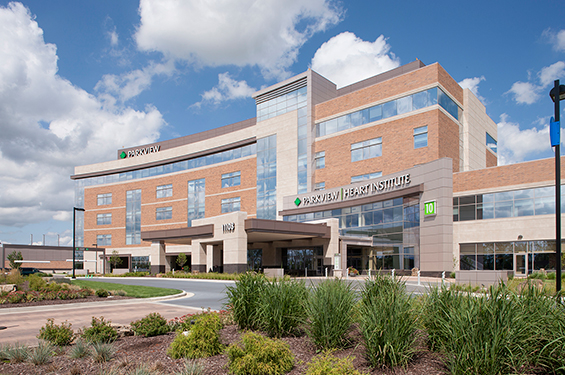Heart conditions we treat
The experts at Parkview Heart Institute specialize in the treatment of complex cardiovascular conditions including, but not limited to:- Aneurysm
- Angina
- Aortic dissection
- Aortic Valve Stenosis
- Arrhythmia
- Atrial Fibrillation (AFib)
- Buerger's Disease
- Cardiometabolic Syndrome
- Congenital Heart Disease
- Coronary Artery Disease
- Deep Vein Thrombosis (DVT)
- Heart Attack
- Heart Failure
- Heart Muscle Disease
- Heart Valve Disease
- High Cholesterol
- Hypertension
- Mitral Valve Regurgitation
- Peripheral Artery Disease (PAD)
- Raynaud's Disease
- Renal Artery Disease
- Vascular Disease
- Tricuspid valve abnormalities
- Varicose Veins
- Venous Disease




